Thinking about giving the carnivore diet a try and getting scared off by all the claims that eating nose-to-tail is “pseudoscience”?
Those vilifications may come from a good place, but sometimes good places reflect a deeply broken understanding of how “science” is best defined.
Who am I to suggest that qualified health experts might be scaring people off a valid experiment with a poor definition? Well, I’m not a medical doctor, but I do have a PhD and a lot of my graduate studies involved course work in the history of science.
And although the carnivore diet I practiced for 30 days didn’t kill me, you might want to pay attention to my experience and findings before giving it a try. I feel I can attribute some key benefits to it, but there are more important aspects at stake than risks and benefits. Scientific literacy itself is at stake.
There also aren’t a whole lot of anecdotal stories out there, and those that exist are often on the utopian side. I wanted to record both the pros and cons as a person who has no particular passion for nerding out about micronutrients or even thinking about food.

In my case, the benefits were ultimately worth the ordeal and I may experiment with eating carnivore again in the future. In fact, it is only by self-experimentation that I could possibly arrive at decision parameters for how the next round might be improved. No book or podcast or blog post is ever going to achieve that for you. Only true scientific experimentation will do that.
So my hope in this post is to not only share my experience eating nose-to-tail for 30 solid days, but also think through the nature of science and the value of n=1 experimentation. If nothing else, the emergence of the carnivore diet highlights just how robbed of self sufficiency and critical thinking has become. More discussion and learning around how individuals can experiment is sorely needed. I would love for greater clarity on how people can develop their own protocols to emerge.
So let me give some context and if you’re thinking about eating animals only or otherwise going zero carb for any length of time, I hope this analysis helps you out.
The Pernicious History Of Suffering
Behind My Carnivore Diet Plan
The history of the carnivore diet is a bit murky, so I can only give a personal history of how I came to know about and even consider attempting meat only. I also feel that the way ancient civilizations are portrayed in some of the research is also murky, particularly when it comes to claims about quality of life.
I remember Mark’s Daily Apple as the first time I heard about making so many modifications to dieting – and I found that after a misdiagnosis of gout. Eventually, a “better” diagnosis suggested psoriatic arthritis. On this site, you read endlessly about our ancestors and you get the feeling that pretending to chase wild game on the beach is almost more important than the food itself.
I found the site amidst an online ocean raging with tons of conflicting advice. Thankfully, I started to learn about n=1 experimentation from my friend Jonathan Levi, who saw me limping around and reacting to foods in real time while we were shooting courses in Tel Aviv. With the n=1 concept installed in my mind, I tried all kinds of autoimmune diets and had some great results I describe at length in The Victorious Mind: How to Master Memory, Meditation and Mental Well-Being.
For several years, I felt amazing using rotation dieting and elimination dieting to almost completely eliminate pain from my life. I never mastered the skin issues, but being pain free was sweet mercy.
I next recall hearing about the carnivore diet from Jordan Peterson.
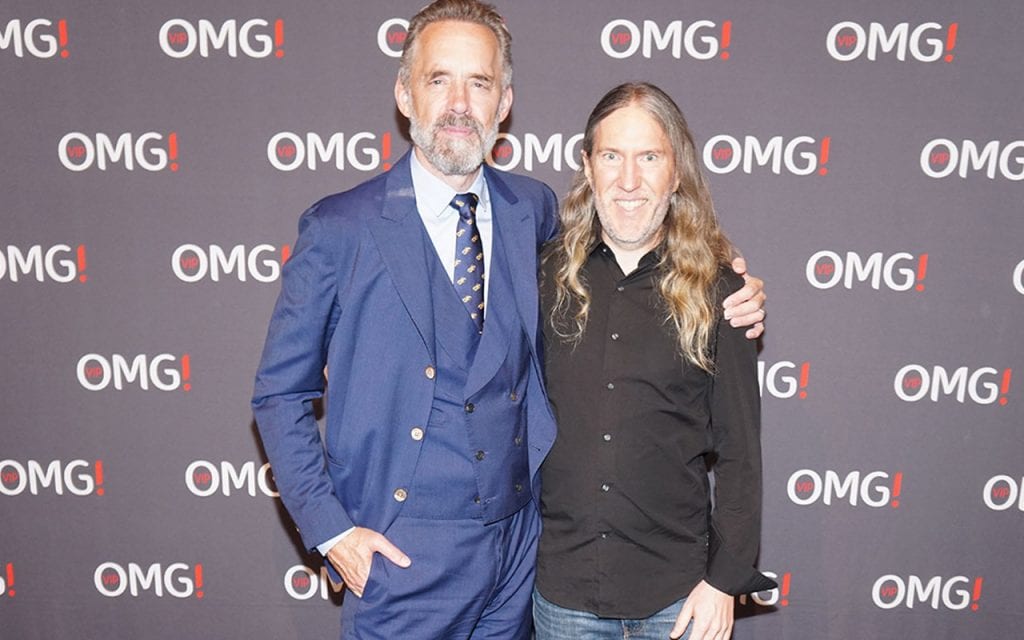
I didn’t think much about it at the time because my symptoms were well-managed. I was eating fine, eliminating like clockwork and hitting the gym three times a week.
But after developing shoulder bursitis in August 2019, things started to go downhill. Along with my shoulder, my right hip started to ache badly, and I wasn’t sure if it was another bursitis issue or my old friend, arthritis. By the time February rolled around and I was preparing my TEDx Talk on the results of my project to eliminate thinking based on the instructions in Happiness Beyond Thought, I was in bad shape.
More specifically, I had silent acid reflux that was chewing up my voice and angular cheilitis. I found these two conditions especially cruel because I was holding weekly livestreams at the time, an activity I found particularly joyful as learners from around the world gathered to learn the great memory tradition I’ve been teaching for nearly a decade through the Magnetic Memory Method initiative.
But by February 2020, I couldn’t talk without the corners of my lips ripping wide open, and I gave my TEDx presentation with the only medicine I could find during the lockdowns: something for athlete’s foot that closed up the wounds just long enough to power through it. I nearly gagged everytime I applied the creepy foot medicine to my mouth… it was a very weird experiment, to say the least. Far weirder than only eating meat, in my experience.
So when Anthony Jay noted a situation I have with the ABCG8 gene and suggested trying a nose-to-tail carnivore diet, I was ready to experiment with anything. (I’d actually tried it once before for about a week, but heart palpitations scared me off. But with some of his suggestions and the support of my friend Matty from The Chief Life, I figured it would be worth another go.)
What Is The Carnivore Diet?
That brings us to a carnivore diet definition… is there one?
The answer is absolutely not.
Kevin Stock defines it fairly frequently as beef and water.
Paul Saladino creates various tiers, but talks about basically reducing things to steak, organ meats and goat cheese. In The Carnivore Code, Saladino advises strongly against some of the supplements Dr. Jay suggested I explore based on my genetic consult.
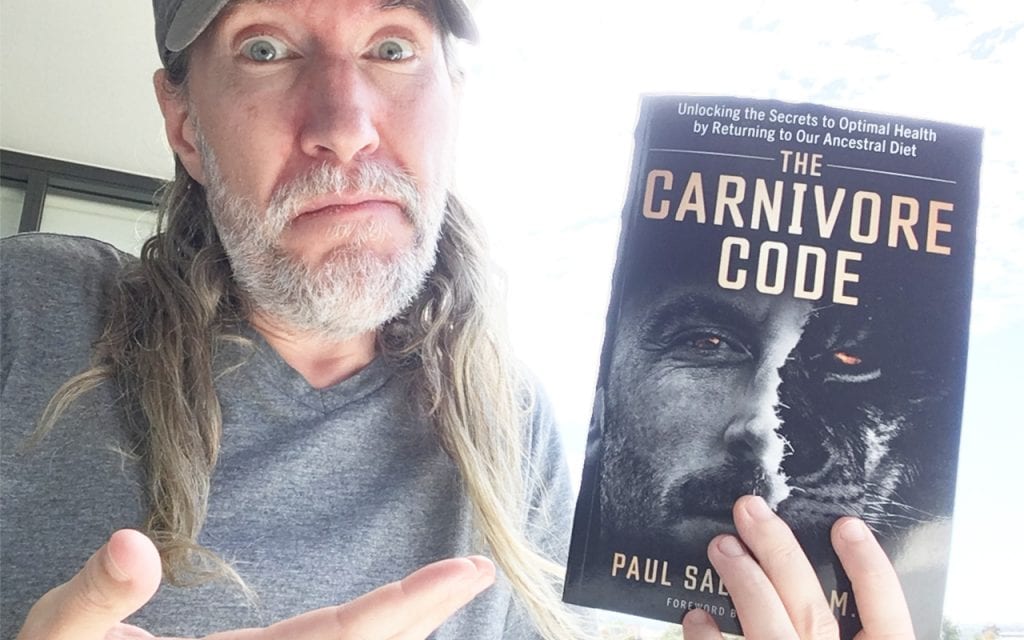
And the more you get into it, the more contradictions you find, such as on the oft-referred to reddit thread for all things Zero Carb. There, some anonymous voices will be patient and kind when answering questions. Others come on with a fury at the mere suggestion of something like adding honey. If anyone were to walk away from that neck of the woods thinking they’d stumbled into a cult, I would not blame them, even though I’m sure most of the posters do not mean to come off as dogmatic as they sometimes do.
But all in all, the ins-and-outs of the carnivore diet are pretty simple: If it comes from an animal, it’s usually okay. And “animal” in this case, seems to strictly mean cows, pigs, sheep and lamb, etc. Seafood seems to belong on a different “tier” and if you’re adding honey, then just expect to be lambasted on one or more corners of the Internet for thinking of bees as animals instead of insects.
So with no clear or agreed upon definition, and only different perspectives to follow, I basically went for “good enough” in my mindset and treated it like an experiment. More on why I think this approach is more important than falling into a dogmatic loop later.
My Carnivore Diet Food List
Since I was severely underweight, I not only had to think about how to eat enough on the carnivore diet. I also had to think about how I could gain some weight on it. Dr. Jay thought that gaining weight might not only help with my mouth issues, but also potentially help with healing my shoulder bursitis. Spoiler alert: I think it did help my shoulder, but not my mouth so much.
Matty helped out by creating a list based on a goal of 2500 calories per day.
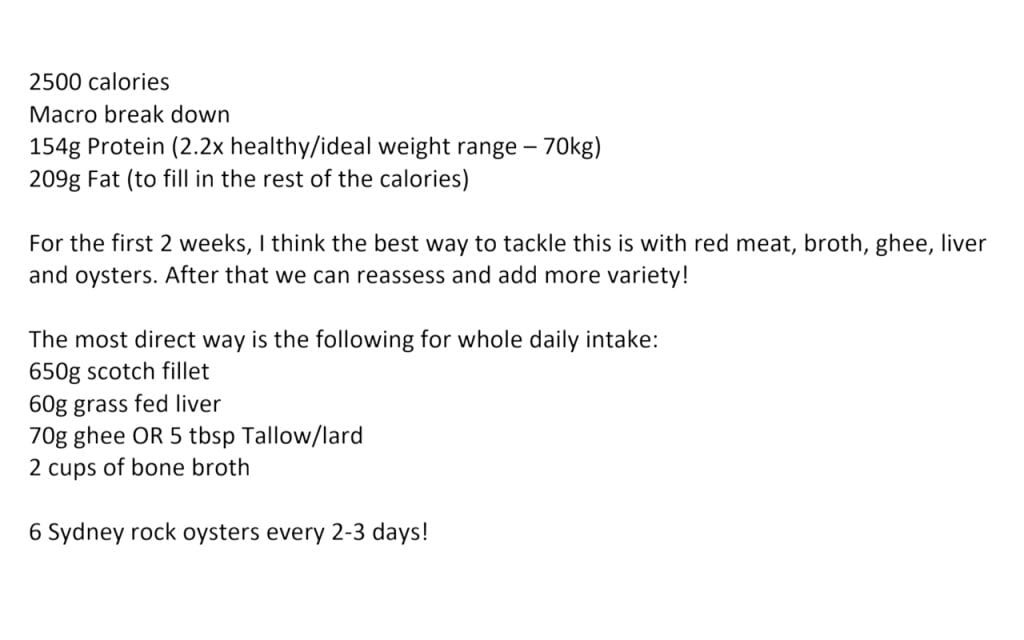
I wasn’t able to source any liver for the first 1.5 weeks, but other than that, I did pretty good.
Along the way, I was able to periodically get beef kidney and heart, but it was always hit and miss. And often butchers could not answer a simple question about whether the meat was grass finished or not.
Later, I added goat yogurt, which I then switched for goat cheese.
Why “Good” Meat Is The Achilles Heel Of Any
Carnivore Diet Plan
Keep in mind that all of this took place during the lockdowns, so it was quite a challenge for anyone to find anything. And as a business owner myself involved in memory training, I know how hard it can be to get staff who can remember all the ins and outs of an industry. By the same token, it would be nice if people on the frontline were more informed.
When you’re trying a new diet for therapeutic reasons to solve health problems that have gone beyond the point of desperation, sourcing good meat is not a challenge you really want to add to your life.
Then again, probably no one wants to spend hours of their time researching websites and then commuting far and wide just to try and get decent meat. It’s a challenge either way, but definitely an extra burden when you’re ill.
The local grocery chain is probably the worst source of meat you can imagine. They’ll say “grass fed” on the package, but as I learned from Matty, this is not necessarily accurate. Apparently, they’re legally allowed to say this even if they’ve grain finished the beef to fatten it up before the slaughter.
That means you’re buying animals that still have illness and inflammation that winds up in you. When trying to run a data-producing experiment, not knowing about this can add tons of noise to the information you’re creating and frustrate you badly.
Luckily, I found some butchers on the phone who could speak intelligently to this, but they could not always provide offal. I’m not sure if this lack is an ongoing issue, something specific to Australia or related to the lockdowns. When ill, it’s all interesting information, but sifting through it only seems to add more suffering to an already painful issue.
The upshot is that commuting from place to place gets you moving and seeing new locations and talking to people is good for the brain. Taking the initiative builds mental strength and so it’s important to pick up the practice whether you feel like it or not.
But just as not having a clear definition of what this diet is causes issues, not having a clear definition of grass fed meat always distorts the project and can lengthen your learning curve. It exposes a lot of issues in how labelling legislation works and getting involved in any kind of reform only increases the burden if you’re already overwhelmed with trying to heal yourself.
Fasting On The Carnivore Diet
The other parameter I added was fasting. I didn’t eat until between 10:00 a.m. and noon. And I only ate twice a day.
I’ve practiced fasting for years, usually fasting twice a week on Thursdays and Sundays. On these days, I wouldn’t eat until dinner, skipping breakfast and lunch. This pattern worked really well.
But for this experiment, I skipped breakfast every day throughout the month. I don’t’ know if it was the food or the pattern, but every time I ate, I crashed really badly. I literally felt like I needed to sleep immediately after.
At first, I imagined this was normal because tigers take a nap after eating… don’t they? But it was such an unusual shift in my energy. I did not like it and am so glad my normal energy patterns are back in full swing. Twice-weekly fasting just seems to work out so much better for me, for whatever reason.
Positive and Negative Symptoms On The Carnivore Diet
Initially, I felt better. My appetite disappeared, but I enjoyed eating and steak had never tasted so good.
The only problem was that I had no way of being “sure” I was actually doing a carnivore diet and I was worried about the harm I might be creating throughout the experiment.
I also changed my gym routine. Since developing shoulder bursitis, my previous and beloved routine went out the window. I was mostly doing shoulder rotation exercises and very light lifting.
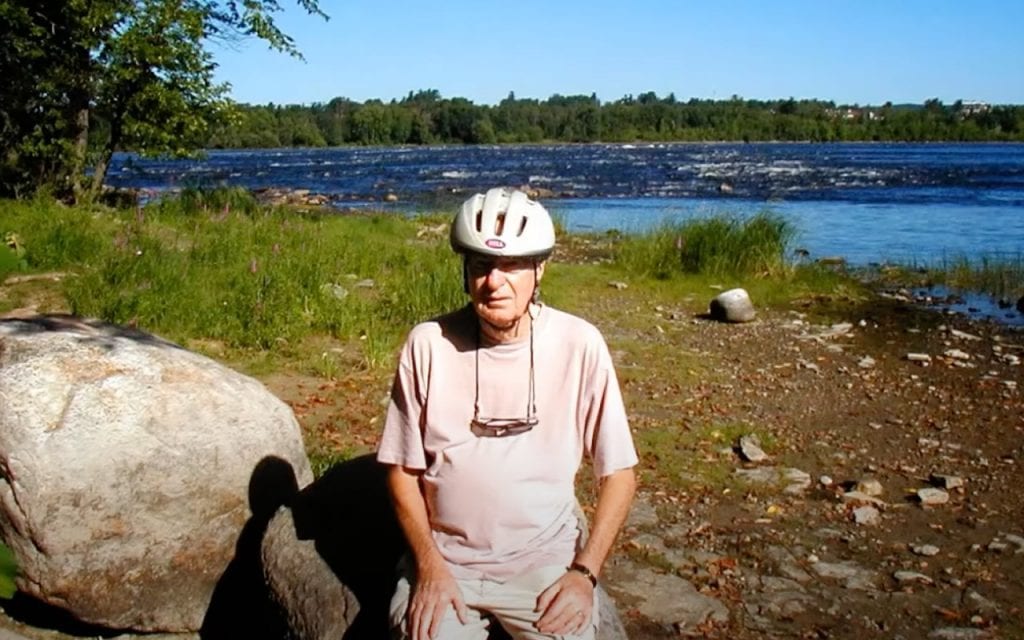
Dr. Jay said my DNA suggested I am “slow-twitch,” so I started spending an hour on the exercise bike for endurance training. I thought his suggestion was interesting because my grandfather had recently died at 93 after years of very good health thanks largely to riding his bike for long distances nearly every day. He had all the gear and was a real biking enthusiast – but I had never thought for a second about emulating his exercise routine based on any genetic predisposition for health benefits I might have. I had been only doing reverse pyramids for years and really enjoying what that did for my physique.
I immediately noticed that my hip and shoulder pain had lessened. Later, the hip pain disappeared completely. My shoulder is still a bit stiff, but I can almost raise my left arm as high as my right arm and it’s generally feeling great – even now that I’m eating a small amount of vegetables again.
Although I had no heart palpitations at first, soon they did set in. At this point, I was two weeks in and getting quite concerned. I worried I was not only in danger of having a heart attack, but wondering about all kinds of things I might be doing to my own organs, even as I was enjoying liver and kidney meats I hadn’t had since I was a kid.
Is Adding More Salt Really That Important?
To try and balance things out, I tried dosing iodine on top of the recommended amount of salt I was taking. I tried a few other supplements from the findings with Dr. Jay, but nothing resolved the heart palpitations. During weeks 3 and 4, I often felt short of breath and I started breaking out in enormous amounts of sweat at the gym. It almost seemed like I was suffering hyperhidrosis.

To help find out, I examined my Selfdecode report, which I had signed up for at Dr. Jay’s suggestion. These reports suggested that I possibly have an aversion to salt, which made we wonder if salt plus the iodine was too much. All my life I have never liked salt and never added it to anything. More data can create more confusion, to be sure, but interesting new things to emphasize and possibly deemphasize emerged, which is a good thing.
Perhaps if I’d known more about carnivore diet supplements, I would have done better, but there’s such a dearth of information out there. And what I could find seems contradictory at every turn.
One night, while being interviewed by my friend David for a book he’s writing on meditation, I was pretty sure I was going to pass out. The worst part was that I was quite brain fogged and couldn’t remember some of the simplest things – a very unusual situation for me. A few days later, I reviewed the food suggestions from Dr. Jay’s list and got some Brussel sprouts back in the mix.
After experimenting with a few more vegetables and seeing how I reacted, I started to return to the normal state of “cruising altitude” calm I’ve built from years of meditation. I’m very glad to have that back, because to continue as I was going was pretty much pure suffering.
Are There Any Key Benefits Of The Carnivore Diet?
I think the best way to answer this is to reword the question like this:
What were the key benefits of the carnivore diet experiment?
Because there’s no clear definition about what this kind of diet actually is, it’s hard to attribute it with any benefits at all. That’s why experimentation is the key.
To their credit, I don’t think any of the voices sharing ideas in this area are ultimately trying to create a cookie-cutter approach. Although there are different levels of what can seem like dogmatic certainty, they all seem to share different ways of approaching the eating lifestyle and at least imply the importance of self-testing.
With that in mind, this extreme form of elimination dieting helped:
- Clear out my system. Although there’s a risk of introducing new parasites when eating only animal products, after going through this diet, I think some nasty creatures that had been in my gut are now gone.
- Remove hip and shoulder pain. This wasn’t the primary goal because I was (and remain) more concerned about healing my mouth and lips. But I’m pretty sure the combination of meat and endurance training has been central here.
- Create a stronger basis and clearer field for slowly introducing vegetables and studying their reactions.
- Eliminate bloating. My right side had been puffing out gas was so bad. This quickly disappeared.
- Establish new knowledge and widen perspectives from reading different research papers and viewpoints.
- Improvement in vision. I had been thinking I might need glasses, but everything sharpened up. Like pain reduction, the vision improvements have lasted past the experiment.
I’m really happy to have had these results.
But on the bad side, many of the promises you read just didn’t come through:
- Mental clarity and memory plummeted. So many people around the net say that this sharpened. I found the opposite.
- Anxiety increased. Not only did my heart pound, but I felt under a strange pressure… almost like being in some kind of nightmare world. Within minutes of eating, I would crash and feel like I needed to sleep. Other times, I would feel like I’d taken speed and felt impulsive with Harm OCD symptoms.
- I lost more weight.
- Intense constipation.
- My urine started to stink badly, as did my breath. I almost gagged on the smell while flossing.
- Depression crept in. Although managing manic depression is just part of my life, I’m not used to dealing with the depression end of the spectrum that much. But it got quite dark and serious during this month-long experiment. When I wasn’t’ thinking of going to emergency to rule out a heart attack, I was often considering whether or not I would need suicide watch.
Because there is no definition of what exactly this diet is supposed to be, it’s pretty hard to figure out what to do. Supplementing potassium, magnesium and adding more sodium didn’t help, and when things got into some serious depression symptoms, I felt my mental resilience flagging quite a bit.
To be fair, I had also dropped coffee as part of the experiment, but that was only during the first two weeks. Adding coffee back lifted my mood partially, but I was not sunny and shiny like I’m used to, even when suffering chronic pain and skin issues. Really, the only time I felt anything like the bliss I normally enjoy from meditation was when I was speaking with David for his book, but even then I also kept thinking I was either going to pass out or have a heart attack.
In sum, for all the benefits, feeling panicked, tired and overwhelmed by heart palpitations was not a great state to be in.
Carnivore Diet Books And Online Resources
The only book I was able to order and read is The Carnivore Code by Paul Saladino. Although it has produced highly polarized reviews, it’s well-worth reading so that you’re analyzing the claims and presentation itself. Some of the criticisms I’ve seen are not entirely fair in how they assess the book.
That said, I feel that Saladino has based a lot of his argumentation firepower on what is quite likely an incorrect premise. In fact, it’s possibly wildly incorrect and that matters a lot. He suggests, for example, that a low life-expectancy is better if you’re enjoying better health before you die. This is pretty much directly stating that this way of eating can kill you earlier, but I’m more interested in how quality of life is being defined and measured.
I’m not entirely sure how Saladino – or anyone – can determine the quality of life ancient civilizations enjoyed. If anything, I think there is far more evidence that our ancestors not only lived much briefer lives than we do, but suffered a lot more.
I’m not saying Saladino is wrong on this front, but reading everyone from Plato to Hobbes and Sam Harris to David Benatar in Better Never to Have Been: The Harm of Coming Into Existence, I just can’t understand how Bentham’s “felicific calculus” could ever verify well-being in these earlier societies of people. If anything, there are so many possible variables that one would have the same issues we have in contemporary society: No one can agree what defines the good life, but we all tend to know it when we see it.
Kevin Stock’s blog is useful as well, but he shares what feels like a kind of you-can-do-it bias. It’s not that I think there is cherrypicking of evidence or anything like that, but the overall vibe feels like the evidence is being used to validate an anecdotal experience that is somehow incomplete. I haven’t seen everything either of these people have put out, but all the blood test results in the world from others won’t accomplish the same thing as a variety of data each person needs to produce for themselves.
This Chris Kresser article is great to look at as well because it gives some carnivore diet alternatives.
I would also highlight Dr. Gundry’s podcast, particularly this episode where he suggests removing spinach and shares some criticisms of the carnivore diet.
The Real Way To Benefit From Carnivore Diet Science
Throughout the experiment, I was proud that I was taking the risk and tracking everything as closely as I could. It’s also a good feeling to engage in n=1 experimentation.
Why?
It gets tiring to keep reading that there is “no good research evidence.” Although this complaint may be true, progres only occurs when people create data. Pointing out that there is none in the numerous ways you find online and in books is not particularly useful. It would be more helpful if people talked more about how individuals might more safely run experiments – something I’m attempting to do in this post.
To that end, I collected data. Perhaps not in the best possible way or according to the most efficient protocol, but I tracked everything as diligently as I could, even though I certainly didn’t feel up to it.
I recorded not only everything I was eating, but exactly when. This was very useful because once the onerous brain fog settled in, I really had troubles remembering not only what I’d eaten, but if I’d eaten.
It’s Partly A Game Of Words And Definitions
Without gathering data, it’s not really an experiment.
Plus, one needs to understand that terms of “gout” and “arthritis” are words. As more data piles in over decades and centuries, our knowledge about them changes.
That’s why it’s so useful to read with an open mind as you produce your own data. So far, most people writing about and talking about the carnivore diet are basing their statements on n=1 experiments plus researching findings. A lot of the research they’re referring to can be interpreted in different ways and the test subjects come from all kinds of contexts. You can be almost certain that those contexts have little of nothing to do with you.
The critics, on the other hand, often don’t seem to have the problems in question. So we have two issues to sort through:
- “Science” is technically forever incomplete. We always gather new data to help confirm or deny our descriptions and explanations of problems we’re trying to solve. So many people either don’t know this or share their views in complete denial of this simple fact about what science truly is.
- Your life will eventually come to completion, but while you live, the data about you is also forever incomplete. You need as much information as you can possibly gather and enough time spent in personal analysis and consultation with others to “stress test” your conclusions.
This kind of thinking is a potential feature and not a bug that could be much more useful in all health science.
At the risk of repetition, science is not about the “truth” with a capital T. It never was and never will be. Science is a tool that helps us gather evidence that confirms or denies hypothetical statements we make. Just because the data shows certain trends for certain psychographics and demographics does not give anyone license to make truth claims or sweep anecdotal accounts under the rug.
And when it comes to your health, only you can ultimately make the statements and then gather the evidence to validate or discredit the outcomes you’re hoping to create. There’s no denying the value of testing based on data produced by others, but it can also lead you into a tangled web that cuts and bruises you. There’s no way to take action without risk and no cookie-cutter path that will work for everyone.
So if you want to know what I think about the carnivore diet in a nutshell, I’d say it’s a worthwhile experiment and only you can find out what it will do to you. Content may be king, but context is god.
Why I’m Glad I Completed A Month-Long
Carnivore Diet Experiment
I actually would have liked to go longer. I just started feeling so unwell that it would have been madness to allow that state to continue.
But I have benefitted a great deal by eliminating my hip pain and reducing my shoulder issue.
Plus, my mouth is a bit better. The main benefit is that it is now much clearer which vegetables were causing some of the reactions I’ve been experiencing. It’s still far from clear why the lip issues emerged and I’m still very concerned about it.
But with so many competing ideas emerging from the specialists I’ve seen, I think it’s been more than worth it to seek clarity from less common methods, such as gene analysis and n=1 experiments with dieting.
You can’t sit around waiting for some medical “expert” to solve your problems. They’re looking at scientific papers and following in many cases government mandates that have nothing to do with you.
But you can take the reins into your own hands. You can develop ideas for running future experiments on the strength the data that matters: Your own.
Nightmare or Utopia?
As you can probably tell by now, the answer is a bit of both.
Sometimes I found that it can be fun studying local websites and picking up the phone to find the best butchers. I didn’t feel like doing those things, but I know from a lot of experience with chronic pain that nearly every movement is much better than stewing in self-pity.
I also learned the difference between grass fed and grass finished meats. I can’t imagine having stumbled across this outside of the experiment because I’ve never read about it on a single site that talks about eating grass fed beef. Another plus is discovering variety by adding some offal to my diet. I neither love or hate the stuff, but given all the restriction dieting I’ve experienced over the years, trying new things that seem to have helped heal rather than destroy has been a delight.
I seem not to have created any damage to my body, and as a final note, I should point out that I made sure to work with my traditional GP all along.
In other words, even though I had to do it on my own, I didn’t do it alone. I had support from friends, the traditional medical community in my area and the conversations being held online and through books by others in this field.
So if you’re going to do it, make sure you “supplement” with your own research and reading, your own support team and make sure you know what kind of meat to eat by seeking help from someone like Matty who can help craft an initial diet.
And let me know what you think. Have you tried the carnivore diet? What have your experiences been like?
November 2020 update
I’ve decided that I will update this page from time to time with progress on this issue. Partly I want these updates to help others who are tracking their own issues, and partly I’m doing it for my memory and analysis. Writing is the source of all wealth, it is often said. So too when it comes to the wealth of our physical wellbeing.
Since publishing on October 8th, I have run a few small experiments.
Vegetables and rice
The first was to add in vegetables. Brussel sprouts have been the steady staple, as indicated on my genetic analysis. There appears to be no problem with them, but no improvements took place.
I added purple sweet potato twice. The first time, my throat would swell from eating them and my lips would start cracking. I also started experiencing hip and right ankle pain, similar to the issues I first encountered in 2013.
The second time, I added purpose sweet potato for 2x weekly max. It’s not clear if this helps, but I enjoy them and there doesn’t seem to be swelling at these small doses.
I’ve also added for the last two weeks daily doses of basmati rice with each meal. This does not appear to help or hinder the issue. I feel like removing it, but I have gained some weight, so will hold a little longer.
Snow fungus
My wife had suggested this before and I didn’t think it would be a good idea. This time around, I decided to give it a try and have been eating it as a soup once a day for the past two weeks.
At first, I felt that the substance reduced the acid in my mouth and there was an immediate improvement with my lips.
However, it now seems to create the some post-eating acidity as anything else. Overall, my mouth is better, but some stability feels far from solved.
Grapefruit seed oil
Several months ago, I took a course on acid reflux that recommended taking these drops to reduce acid reflux symptoms. I tried it back then, but seemed to have a bad reaction.
This time around, it does seem to produce a positive effect. I am taking 10 drops, 2x daily. The sensation of having acid in my mouth goes down quite quickly.
Beyond that, I’m still pretty much eating carnivorish, with beef, salmon and oysters as staples. I try to hit the gym daily, but usually manage 4-5x a week.
The main thing, and mercifully something I seem to remain decently skilled with, is maintaining mindset and keeping up the search for ideas. Experimentation is interesting and even exciting when you keep your attitude in check.
And if you enjoyed this post, please consider going through my Daily Discipline Masterplan guide and video course. It includes much better experiments, ones that have kept me in very good health indeed:

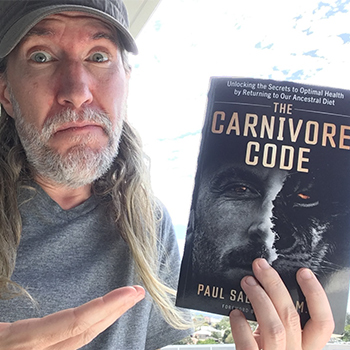
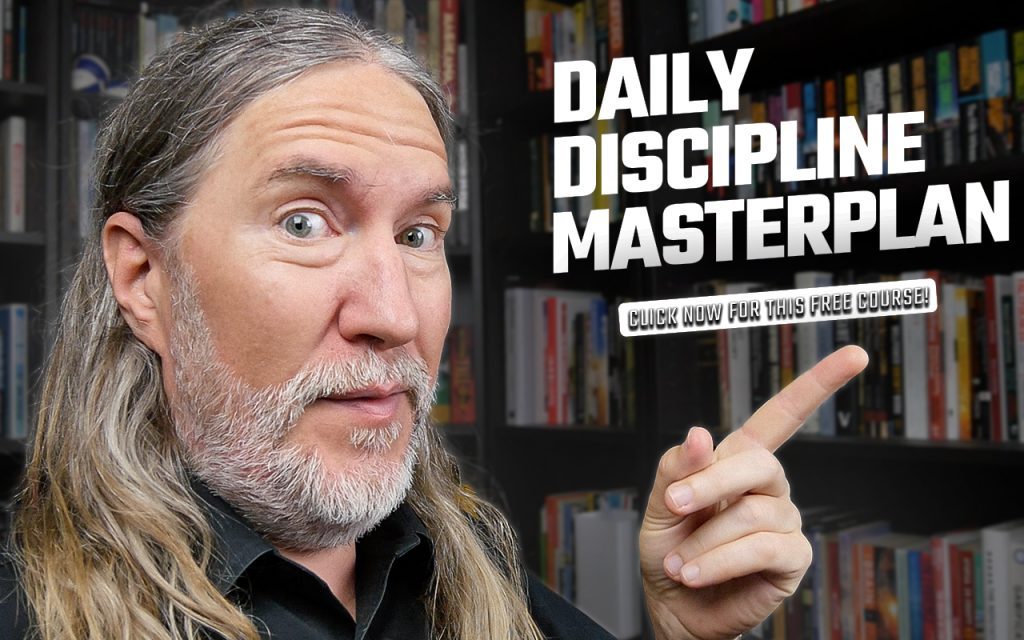
What a post! I appreciate the time you dedicate to creating meaningful, well-rounded content. I love your videos, the joy you feel about your field really comes through. Blog posts are no different. Thank you!
Thanks so much for checking this post out and for your kind words, Sam. That is much appreciated.
Have you ever done any experiments with diet and nutrition like this? Anything else you’d like to see covered in the future with this amount of attention?
Just joined this group after buying your new book. I’m so happy to see you talking about the carnivore diet as I’ve been on it for 2 years now and it has changed my life immensely!
Thanks so much for your comment, Brent, and for being part of the group.
What prompted you to start this way of eating? Did you have any initial bumps that you needed to sort out? Or was it smooth sailing from the beginning?